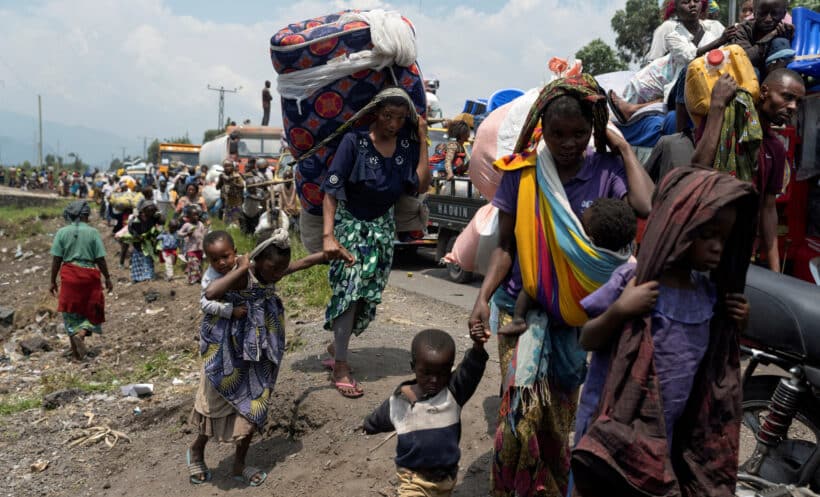
KINSHASA, Aug 11 (Reuters) – Democratic Republic of Congo said on Sunday it had begun talks with Zambia a day after its southern African neighbour sealed their common border, blocking a key export route for Congo, the world’s second largest copper producer.
Zambian Trade Minister Chipoka Mulenga announced a temporary border closure on Saturday after a Congolese ban on imported soft drinks and beer led to demonstrations by Congolese transporters in the town of Kasumbalesa on the Zambian border.
“Talks between the Congolese and Zambian governments have started since this Sunday via videoconference to lead to the rapid reopening of the borders,” the Congolese trade ministry said in a statement.
“In the hours that follow, the two parties will meet in Lubumbashi in Haut-Katanga to find a lasting solution regarding trade.”
Congo’s Trade Minister Julien Paluku Kahongya said in a statement earlier on Sunday that his ministry had received no formal notice of a trade dispute from Zambia before it announced the closure. In the statement, he detailed the two countries’ trade agreement and its dispute settlement mechanisms.
“There is to date no dispute brought to (the ministry’s) attention in writing or through diplomatic channels,” he said. “It is willing, if necessary, to examine any request made by the Zambian party bound by the agreement, which also prohibits any retaliatory measures.”
Congo was the world’s no. 2 producer and no. 3 exporter of copper in 2023, producing about 2.84 million tons.
Zambia is a key export route for the Central African country. Most of Congo’s copper exports pass through the town of Kasumbalesa and into Zambia.
(Reporting by Ange Kasongo Adihe; Additional reporting by Chris Mfula in Lusaka; Writing by Portia Crowe; Editing by Andrew Cawthorne)

